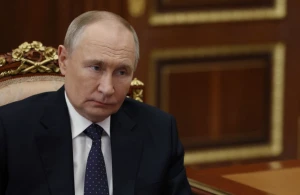
EU agrees to transfer revenues from frozen Russian assets to Ukraine
On Tuesday, May 21, Czech Foreign Minister Jan Lipavský announced that the EU countries have agreed on a plan to use proceeds from frozen Russian assets to aid Ukraine
He shared this on the X social network (formerly Twitter).
"Today, within the EU, we decided to transfer to Ukraine the funds obtained from freezing the assets of the Russian Central Bank. This year alone, the amount could reach up to 3 billion euros," Lipavský wrote.
Jan Lipavský also noted that 90% of the funds will go towards military support.
"Russia must pay for the damage caused by its aggressive war," the Czech minister emphasized.
What is known about the confiscation of Russian assets
On November 30, the US Senate introduced a bill to confiscate Russian assets. By January 11, the Biden administration backed the idea, supporting the transfer of Russian Federation assets to Ukraine.
Russia warned that confiscating its frozen assets could cost the West at least $288 billion in lost assets and investments. Moscow also threatened retaliation.
On January 23, Belgium's ambassador to the US, Jean-Arthur Regibeau, stated that Western countries should collectively decide on confiscating frozen Russian assets, most of which are held in Brussels' Euroclear.
The next day, the US Senate committee approved a bill to confiscate Russian assets and transfer them to Ukraine.
By January 30, the Committee on Political Affairs of the Parliamentary Assembly of the Council of Europe adopted a draft resolution to confiscate frozen Russian assets and allocate them to a fund for Ukraine's restoration.
Europe holds €191 billion of Russia's €260 billion in frozen foreign assets. The €4.4 billion profit from these assets in 2023 is intended for Ukraine.
On February 12, the Council of the EU decided on a mechanism to use profits from frozen Russian assets in the EU for Ukraine.
On May 7, German Chancellor Olaf Scholz supported using about 90% of profits from frozen Russian assets for Ukraine's defense needs.
Finally, on May 8, EU ambassadors agreed to direct revenues from frozen Russian assets to Ukraine’s reconstruction and defense against the aggressor.
- News













































